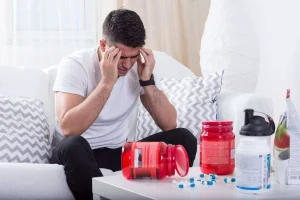
An uncomfortable sleep environment can make getting a good night’s rest challenging. PsychiatryOnline subscription options offer access to the DSM-5-TR® library, books, journals, CME, and patient resources. This all-in-one virtual library does alcohol help you sleep provides psychiatrists and mental health professionals with key resources for diagnosis, treatment, research, and professional development. Your daily habits and environment can significantly impact the quality of your sleep.

Drugs, sleep, and the addicted brain
Before you start taking Arimidex, talk with your doctor and pharmacist about any herbs, vitamins, or supplements you take. Sharing this information with them may help you avoid possible interactions. Note that this information does not include all other possible interactions with Arimidex. If you take prasterone, talk with your doctor before starting Arimidex treatment.

2 Neurochemistry of alcoholism effects
Taking too much tramadol or mixing it with alcohol or certain other medications can lead to life threatening complications. These include extreme drowsiness that can progress to stupor or coma. Vivid dreams and nightmares — With alcohol in your system you’re more likely to have intense, colorful dreams and nightmares as you sleep patterns ebb and flow. You may or may not remember them, but they can be lucid or give you a feeling that you are half awake and half asleep. Since alcohol affects everyone differently, it’s important to understand where your limit lies and how much alcohol you can drink before it starts to affect your sleep.
Circadian Rhythm Fasting
Differences in activity in the fast frequency bands (beta and gamma) duringsleep between alcoholics and controls are less consistent. Feige et al. (2007) reported elevated beta activity in REM and gamma activity instage 2 NREM sleep, but only in data from the adaptation nights, with no differences forsubsequent placebo nights from their drug study. (2002) reported a trend for elevated beta activity in alcoholics across theentire night at baseline that became a significant difference during a recovery nightfollowing a night of partial sleep deprivation.

- The more you drink, and the closer your drinking is to bedtime, the more it will negatively impact your sleep.
- Using PSG, Peles et al. evaluated patients with heroin use disorder who were being treated with high and low dose methadone [157].
- This rebound in REM sleep has been explained as reflecting both an increased number of REM periods as well as shorter intervals between each REM cycle [196].
- Tramadol’s side effects generally become more common with increasing doses.
- The tolerance to REM sleep changes, however, appears to be relatively muted [75].
- Like nearly all of the body’s organs, the liver functions according to circadian rhythms.
Total sleep time, sleep efficiency, and slow-wave sleep time is reduced [1, 27, 28, 75, 78] (Table 1), and REM sleep is increased (REM rebound) [74, 75, 77, 108, 160, 175]. At the very least, the REM effects may reflect the development of physical dependence and an altered central nervous system neurobiology. Chronic alcohol and drug use likely alters the neurobiology of sleep and the control of REM sleep, a predominately pontine cholinergeric phenomenon.
Orexin neurons are activated by reward and project to the DA neurons in VTA that innervate the nucleus accumbens and mediate reward, which they also influence via their direct projections to it. Chronic opioid exposure upregulates orexin in humans and rodents [30]. Postmortem brains of heroin users showed increases in orexin neuron numbers in the lateral hypothalamus and reverse translation studies verified that chronic opioid administration in rodents also increased the number of orexin neurons in their lateral hypothalamus.
Alcohol and the Sleeping Brain
Knowledge, attitude, and practice toward sleep disorders and sleep hygiene among perimenopausal women
- An estimated 20% to 30% of people report drinking to manage insomnia.7 While alcohol can initially cause sedation, over time, alcohol causes major disruptions in the quality of sleep.
- It’s essential to follow your doctor’s instructions when taking tramadol and any other medications along with it.
- That’s because a lack of sleep puts you in a state of “hyperarousal.” And like other kinds of stress, this can raise the chances you’ll abuse drugs.
- Note that this information does not include all other possible interactions with Arimidex.
